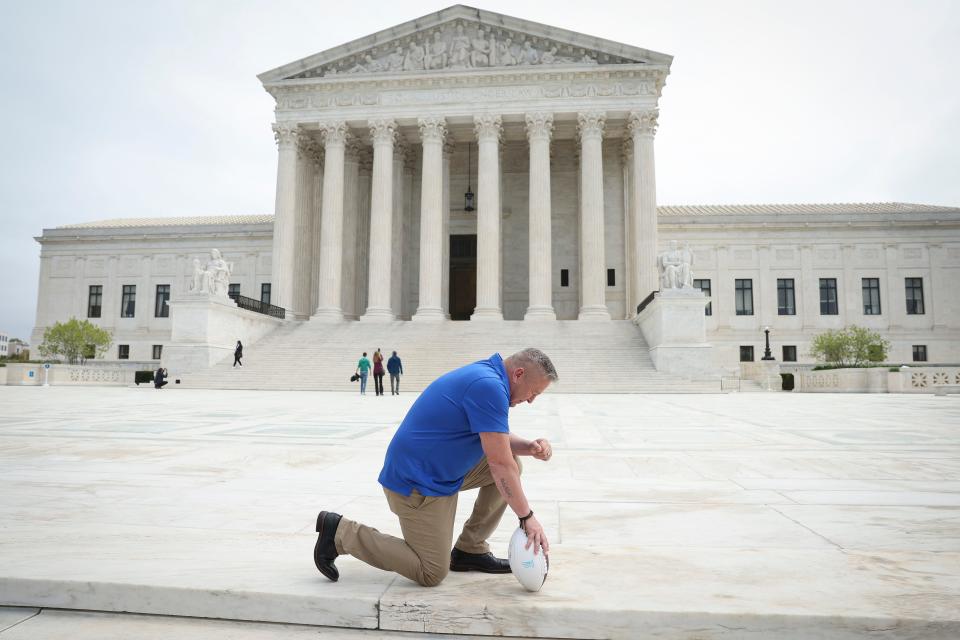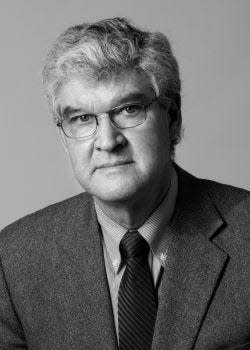I know how coercive team prayers can be. Supreme Court wrong to side with coach Kennedy.
As a rookie with the Pittsburgh Steelers, I objected to the pre-game prayers. They were the same each week and represented a negotiation with the almighty.
Although the prayers were led by our defensive captain instead of a coach, I felt considerable pressure to attend. I did not want to offend a powerful veteran, and I wanted to be a good teammate.
Some veterans on the team ignored the sessions and went about their pre-game preparations. But I listened, and what I heard was counter to my beliefs. The defensive captain lectured God on how hard we had worked in practice, implying that our efforts warranted divine help as a reward.
That was not my prayer.
School choice is sweeping America. Now, Supreme Court has given parents even more options.
I’m not saying that my interpretation was more enlightened or orthodox than his. I am saying that if and how I prayed was my decision and mine alone.
With a 6-3 decision on Monday, the Supreme Court said a public high school football coach can impose his prayers on his players.
In Kennedy v. Bremerton School District, the court upheld the coach's right to pray on the 50-yard line and invite players to kneel with him. In doing so, I believe the court violated the players' free exercise of religion.

Rather than letting the individual players decide if, when and how they pray, the justices empowered coaches to inflict their prayers on their teams. And high school coaches exert far more influence on their players than our defensive captain did on me.
Players likely to disagree with sectarian prayer
It is highly unlikely that players on any given team will find their coach’s prayer agreeable.
If a team reflects the religious affiliations of the American people as reported by Pew Research, then about 63% of the players will identify as Christians. That would mean a 60-person football squad includes 22 players who are not professing Christians (enough players to fill an entire offensive unit and defensive unit).
We are Muslims and Jews. We needed the Supreme Court to side with coach's Christian prayer.
And the self-declared Christians are subjected to prayers that may represent interpretations contrary to their beliefs and practices. Some would see praying on the 50-yard line as violating Jesus’ admonition to avoid praying on street corners in order to make a show before people. Others may view Christian faith as a moral code to live by yet they may have to listen to a fundamentalist go on about people being lost or saved and heading to hell or heaven.
Or, if the coach is non-Christian, say a Muslim, Christian players must listen to a non-Christian prayer.
Coach's authority outlasts game
When an individual player prays before, during or after a game, it is a voluntary act – a matter of conscience. When a coach leads a prayer, his players are a captive audience who must listen to his ideas, not theirs.
The ruling also violates the First Amendment bar concerning a religious establishment. It permits a public school official to vocalize his or her particular prayer to a captive audience. And coaches are powerful authority figures. They decide who plays and who does not. When coaches initiate a prayer and invite players to participate, the players either conform and listen to, or at least sit through, that prayer or risk their places on the team.
The defensive captain on my team had every right to pray how he wished. So do coaches. But that right also belongs to every individual player.

The framers of the U.S. Constitution did not form a Christian union. Nor did they authorize state officials to lead prescribed prayers. Rather, as James Madison wrote, religion “must be left to the conviction and conscience of every man.” He added, “It is the right of every man to exercise it as these may dictate.”
Frank Lambert played two seasons for the Pittsburgh Steelers, 1965-66, before he became a history professor at Purdue University. His books include "The Founding Fathers and the Place of Religion in America" and "Separation of Church and State: Founding Principle of Religious Liberty."
You can read diverse opinions from our Board of Contributors and other writers on the Opinion front page, on Twitter @usatodayopinion and in our daily Opinion newsletter. To respond to a column, submit a comment to letters@usatoday.com.
This article originally appeared on USA TODAY: Supreme Court wrong about Bremerton coach Kennedy's coercive prayer

 Yahoo Movies
Yahoo Movies 
